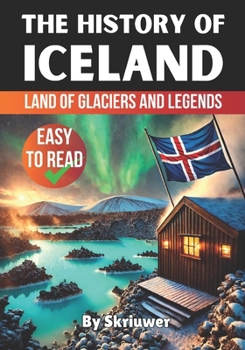The History of Iceland
The story in The Complete History of Iceland begins on the Mid-Atlantic Ridge, shaped by volcanic eruptions and glacial forces that formed an island like no other. Early Norse settlers arrived and built farms, shared Icelandic sagas, and formed a Commonwealth known for its laws and storytelling. Their world was both harsh and rich with tradition, giving rise to a strong sense of unity tied to the land's natural might.
Under foreign crowns, Iceland saw trade monopolies, the Reformation, and ongoing economic and social changes. Despite strict rules from Norway and later Denmark, Icelanders preserved their r mur poetry and folk beliefs, passing them down through oral and written traditions. They faced extreme challenges-famine, harsh winters, and limited resources-yet remained bound together by resilience and a deep connection to the sagas and language that defined them.
By the late 19th century, new ideas from the Enlightenment and a wave of Romantic nationalism stirred a clear Icelandic identity, blending old customs with modern hopes. This era, marked by increased literacy, cultural festivals, and growing local governance, set the stage for Iceland's future steps toward self-rule. Brimming with key moments like volcanic eruptions, Norse settlements, and cultural awakenings, The Complete History of Iceland shows how nature, culture, and unity forged the spirit of this remarkable land.
Related Subjects
Poetry




